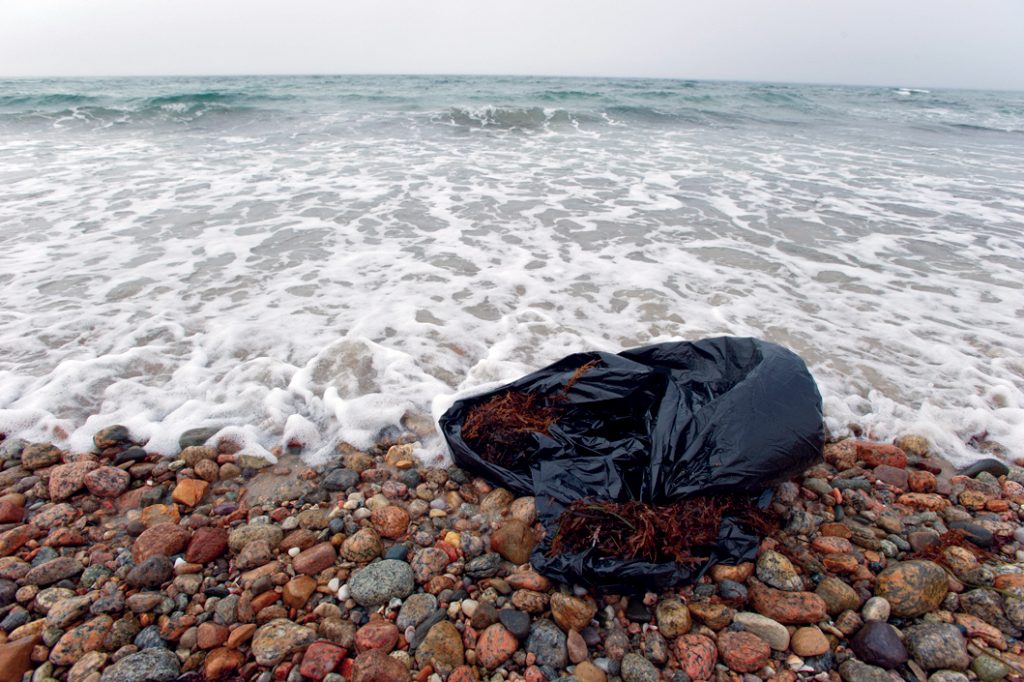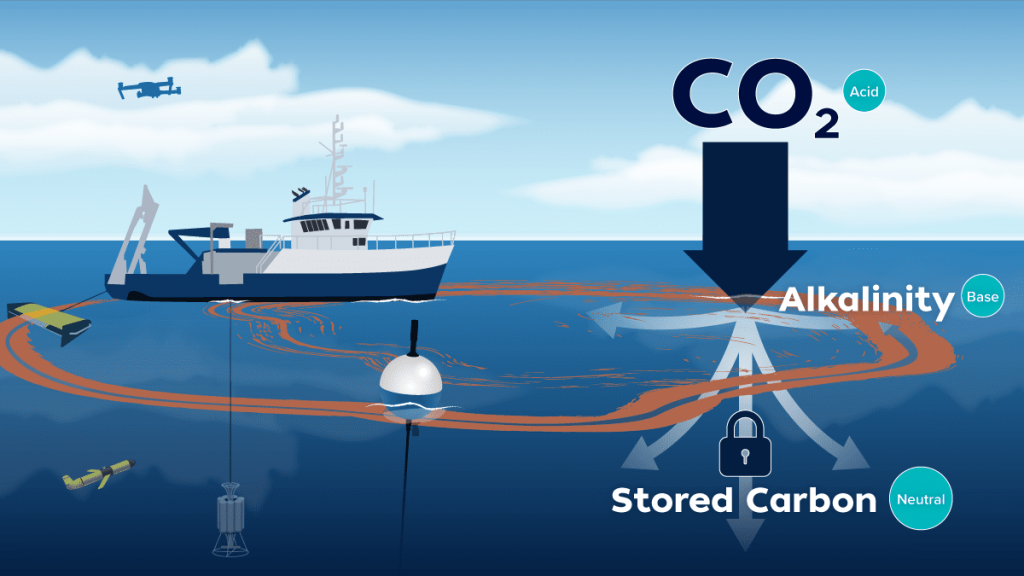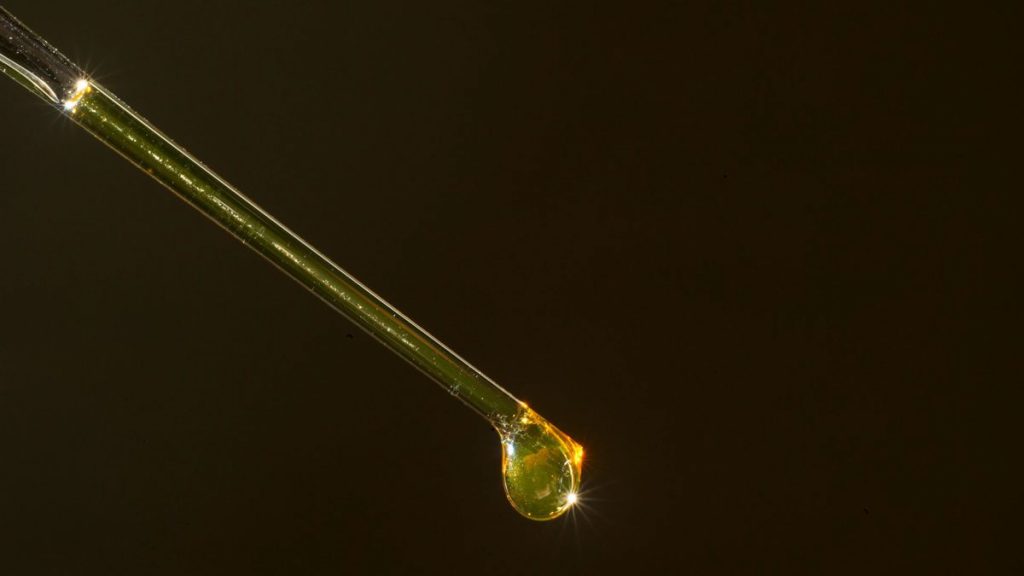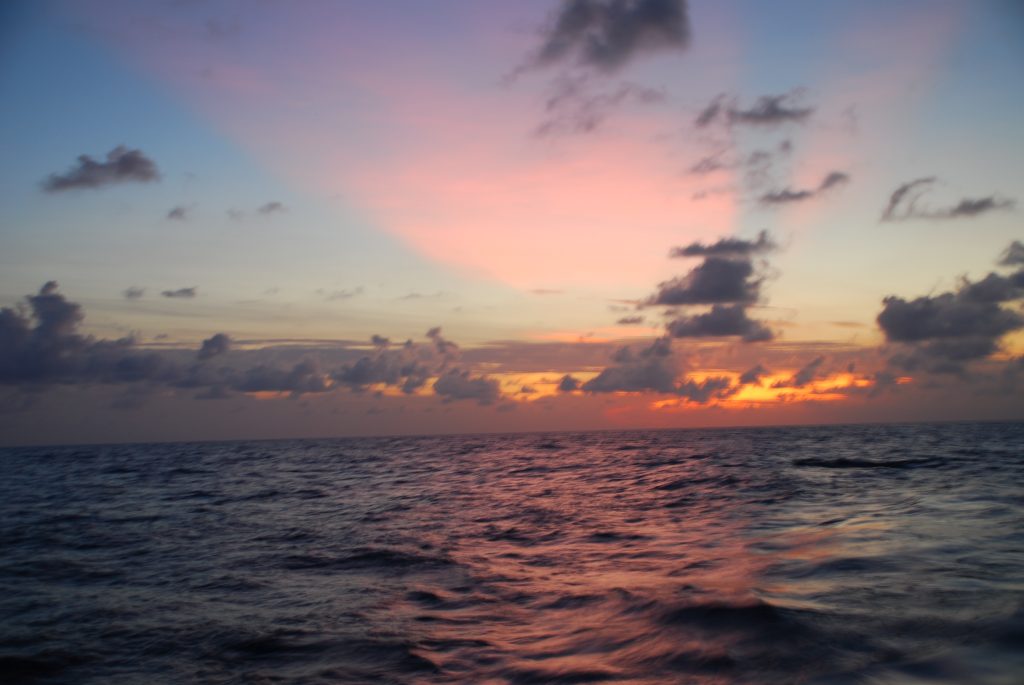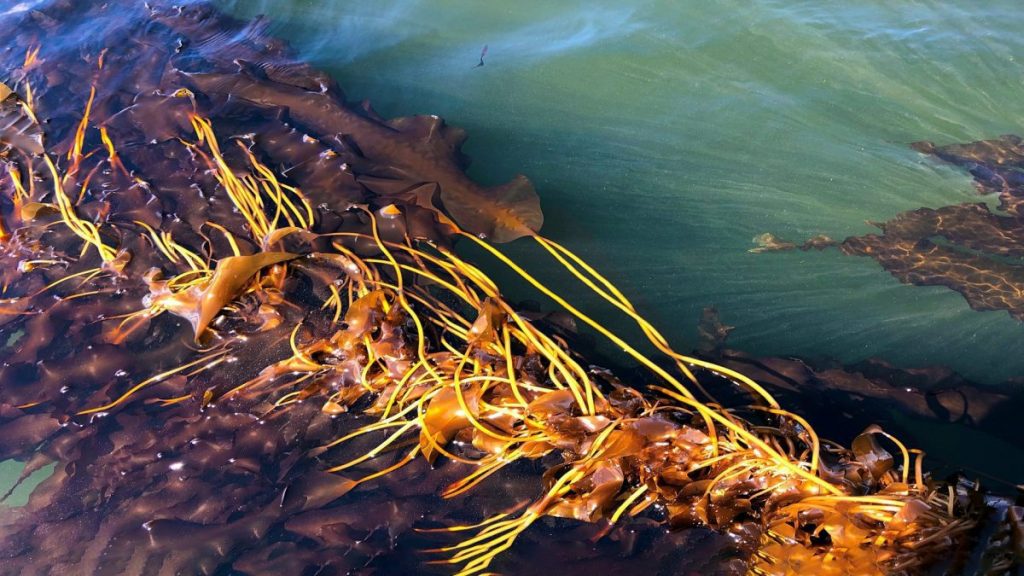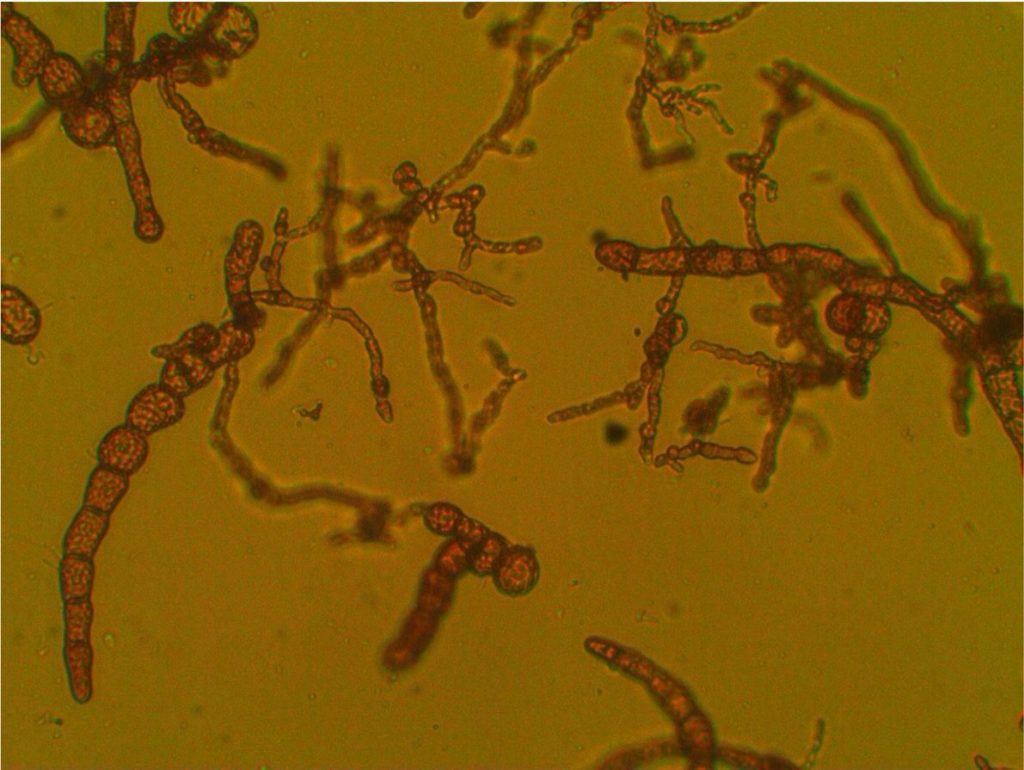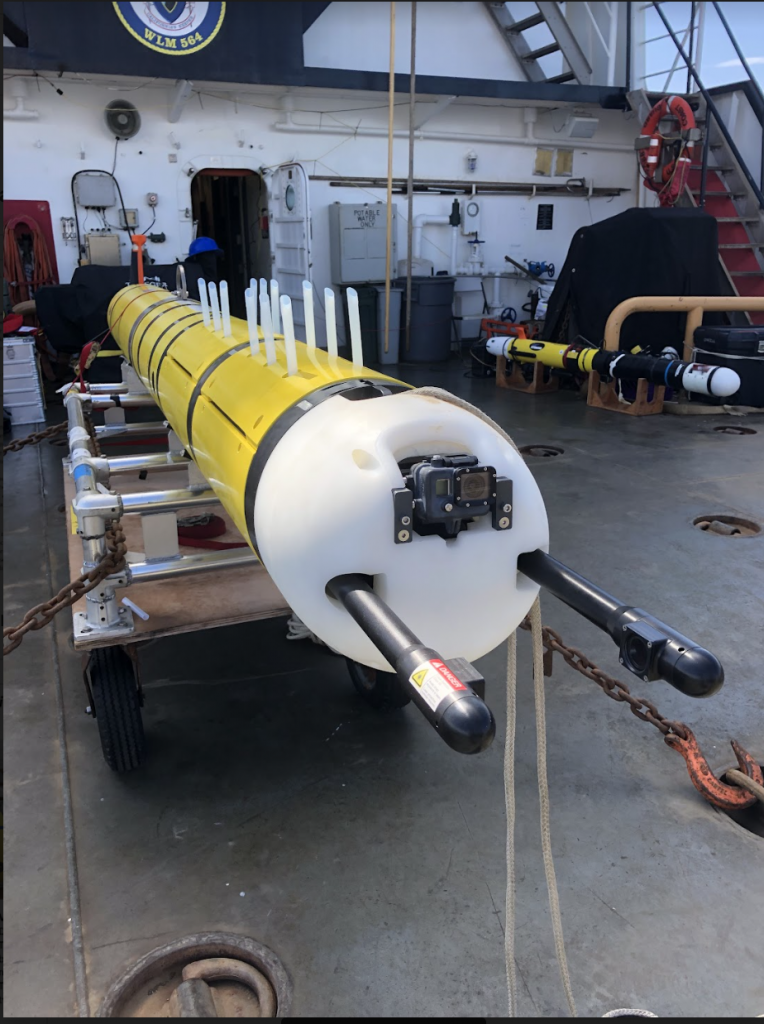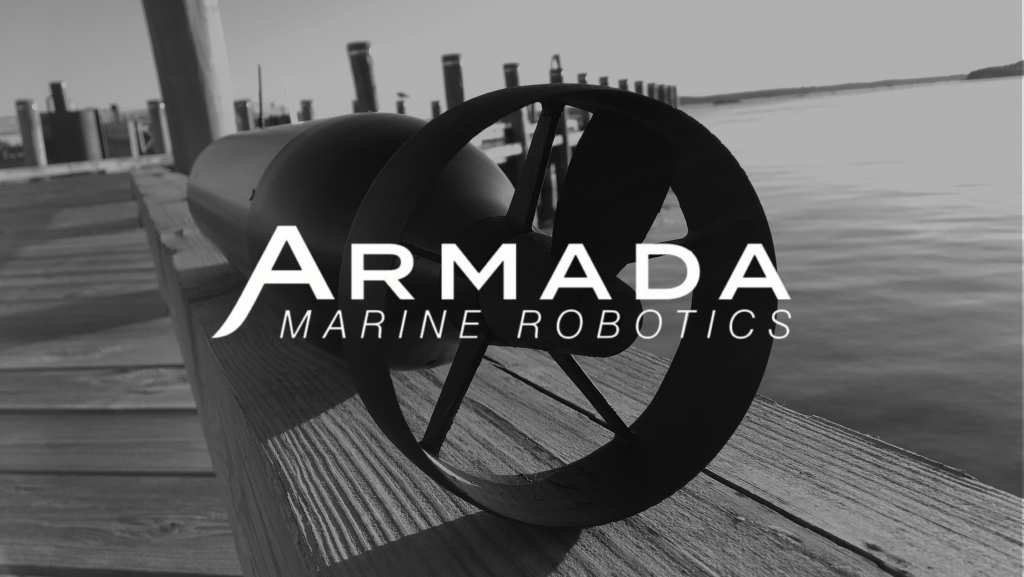Posts Tagged ‘marine research’
WHOI Receives Issued Patent for Advanced Time Synchronization and Range Estimation in Underwater Systems
The Woods Hole Oceanographic Institution has received a patent for an improved method for enabling precise range estimation and time synchronization for underwater systems (US Patent No. 12,058,635). This new capability can significantly improve the performance of submerged systems, including underwater sensors used for earthquake monitoring and autonomous underwater vehicles. Retrieving high-quality data from the…
Read MoreBehind the Innovation: Q&A with WHOI Software Engineer, Mario Carloni
As part of the Information Services: Science and Engineering team at Woods Hole Oceanographic Institution, Mario Carloni is no stranger to managing complex datasets when it comes to oceanographic data. His experience ranges from developing network device registration apps to creating sensor broadcast relays for research vessels and managing over 500 data streams from globally…
Read MoreWHOI scientists discuss plastic pollution and academia-industry partnerships in new Nature.com article
In a new article on nature.com, Woods Hole Oceanographic Institution (WHOI) Associate Scientist Collin Ward, Senior Scientist Chris Reddy, and partners from Eastman Chemical Company discuss how academia-industry partnerships could help overcome challenges in controlling plastic pollution and transitioning away from conventional plastics. Ward, Reddy, and Eastman share insights from their ongoing partnership and how expertise from…
Read MoreOcean Alkalinity Enhancement Project Looks at Pulling Carbon Dioxide from the Atmosphere
Scientists are looking at a technique known as ocean alkalinity enhancement, or OAE, as a potential way to remove carbon dioxide from the atmosphere.
Read MoreNatural Wax Holds Promise to Replace Petroleum in Cosmetics and Personal Care Products
Woods Hole Oceanographic Institution and Western Washington University Sign License Agreement for Upwell Cosmetics to Make and Market a Marine Microalga-Derived Wax Woods Hole, Mass. — A wax that is derived from a commonly grown marine microalga could be the next big thing in cosmetics and personal care products, thanks to a recent license agreement…
Read MorePropeller Announces $100 Million Fund to Invest in Ocean-Climate Companies
Unique partnership with Woods Hole Oceanographic Institution and veteran leadership team deploys vital capital to blue economy ‘narwhals’ at the nexus of ocean innovation, science and technology Propeller, a climate-tech fund that invests in and builds ocean-climate companies, announced its inaugural $100 million fund to support founders looking to address the climate crisis by…
Read MoreWoods Hole Oceanographic Institution receives Seagriculture Innovation Awards
Infertile sugar kelp breeding and seaweed planting device projects recognized at international conference WHOI also receives National Sea Grant Award to continue innovative kelp studies Woods Hole, MA – Woods Hole Oceanographic Institution (WHOI)-led teams earned Gold and Silver Innovation Awards for seaweed solutions projects, presented at the first annual Seagriculture Conference USA 2022 in…
Read MoreInnovative, new “road map” for kelp crop improvement
Woods Hole Oceanographic Institution and University of Connecticut license kelp germplasm collection to Bigelow Laboratory for Ocean Sciences Woods Hole, MA – Woods Hole Oceanographic Institution (WHOI), the University of Connecticut, and Bigelow Laboratory for Ocean Sciences have executed a license agreement for a kelp germplasm, or collection of microscopic cells called gametophytes, containing more than 1,200 samples all…
Read MoreWHOI Engineers Invent Sampling System for AUVs used in Oil Spill Response
The oil that enters aquatic environments can have significant ecosystem impacts. Most spilled oil from platforms and vessels floats on the water surface, but spills under the water can be more challenging to detect and observe. Underwater oil spills require additional observation measurements from remote sensors, surface vessels, and remotely operated and autonomous vehicles, which…
Read MoreStartup Spotlight: Q+A with ARMADA Marine Robotics, Inc. Founders, Jeff Kaeli, Robin Littlefield, and Rusty Warren
In 2017, WHOI engineers Jeff Kaeli and Robin Littlefield entered the WHOI Office for Technology Transfer Pitchathon, intending to win translational funds to advance what was then just an idea, the Asymmetric Thruster. This novel propulsion system, now a patented and demonstrated technology, produces forward thrust – as with a traditional multi-bladed propeller – but…
Read More




